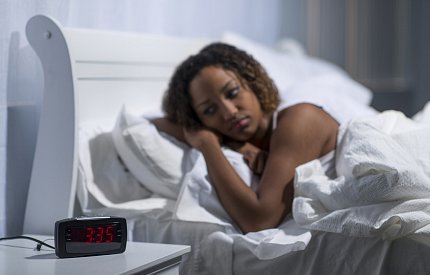Sleeping with Artificial Light at Night Associated with Weight Gain in Women

Photo: Fatcamera/Getty
Sleeping with a television or light on in the room may be a risk factor for gaining weight or developing obesity, according to NIH scientists. The research, which was published online June 10 in JAMA Internal Medicine, is the first to find an association between any exposure to artificial light at night while sleeping and weight gain in women. The results suggest that cutting off lights at bedtime could reduce women’s chances of becoming obese.
The research team used questionnaire data from 43,722 women in the Sister Study, a cohort study that examines risk factors for breast cancer and other diseases. The participants, ages 35-74 years, had no history of cancer or cardiovascular disease and were not shift workers, daytime sleepers or pregnant when the study began. The study questionnaire asked whether the women slept with no light, a small nightlight, light outside of the room or a light or television on in the room.
Scientists used weight, height, waist and hip circumference and body mass index measurements taken at baseline, as well as self-reported information on weight at baseline and follow-up 5 years later. Using this information, the scientists were able to study obesity and weight gain in women exposed to artificial light at night with women who reported sleeping in dark rooms.
The results varied with the level of artificial light at night exposure. For example, using a small nightlight was not associated with weight gain, whereas women who slept with a light or television on were 17 percent more likely to have gained 5 kilograms, approximately 11 pounds, or more over the follow-up period. The association with having light coming from outside the room was more modest.
Also, the scientists wondered if not getting enough rest factored into the findings.
“Although poor sleep by itself was associated with obesity and weight gain, it did not explain the associations between exposure to artificial light while sleeping and weight,” said corresponding author Dr. Dale Sandler, chief of the Epidemiology Branch at NIEHS.
